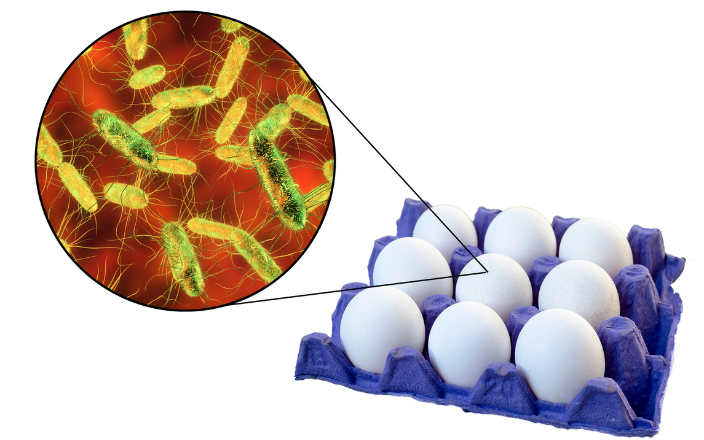In a significant food safety alert, French authorities have ordered the recall of approximately 3 million eggs due to potential contamination with Salmonella. This recall affects several major supermarket chains, including Carrefour, U, Auchan, E.Leclerc, and Intermarché, with eggs sold between September 29th and October 10th, 2024.
The contamination and its impact
Salmonella is a type of bacteria that can cause serious and sometimes fatal infections in young children, elderly people, and others with weakened immune systems. In healthy individuals, it can cause symptoms such as fever, diarrhea, nausea, vomiting, and abdominal pain. The contamination was detected during routine checks, prompting immediate action to prevent a widespread health crisis.
So far, health agencies have reported that eight people have fallen ill with symptoms potentially linked to the contaminated eggs, although no hospitalizations have been reported. The swift recall aims to prevent further cases and ensure consumer safety.
The recall process
The recall involves eggs with expiration dates between October 24th and October 31st, 2024. Consumers who have purchased these eggs are advised to return them to the place of purchase for a full refund. The affected eggs are being removed from shelves across the country, and additional batches are being tested to ensure they are free from contamination.
Authorities have also provided a detailed list of the affected egg brands and batches on their official websites and through various media channels to ensure the public is well-informed.
Preventive measures and public response
In response to the scare, French health authorities are emphasizing the importance of proper food handling and cooking practices. They recommend that eggs should be cooked thoroughly to kill any potential bacteria. Additionally, consumers are advised to practice good hygiene, such as washing hands and surfaces that come into contact with raw eggs.
The public response has been mixed, with some consumers expressing concern over the safety of their food supply, while others appreciate the transparency and swift action taken by the authorities. The recall has also sparked discussions about the need for stricter regulations and more frequent inspections to prevent such incidents in the future.
Looking ahead
This incident highlights the ongoing challenges in ensuring food safety and the importance of vigilance in the food production and distribution process. While the recall has undoubtedly caused inconvenience and concern, it also serves as a reminder of the critical role that regulatory bodies play in protecting public health.
As investigations continue, authorities are working closely with egg producers to identify the source of the contamination and implement measures to prevent future occurrences. The goal is to restore consumer confidence and ensure that such a scare does not happen again.
In conclusion, the Salmonella scare in France underscores the importance of food safety protocols and the need for continuous monitoring and swift action in the face of potential health threats.
Sources: Available upon request.

